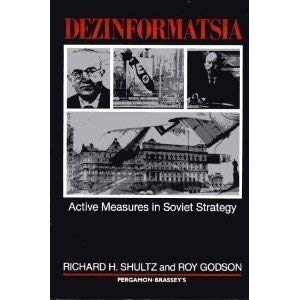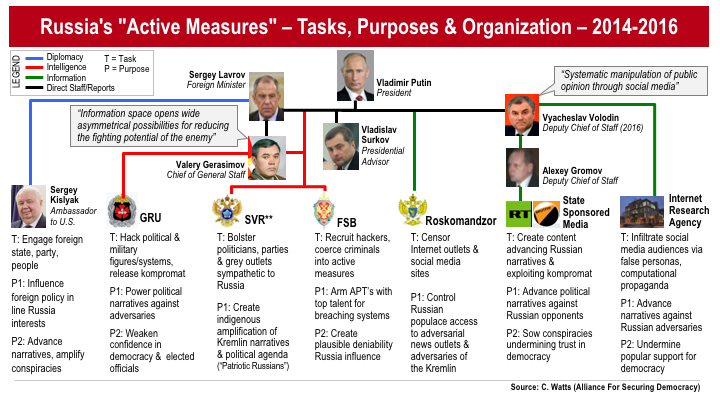 Russia is pursuing one of its favored methods of destabilizing global democracy. By covertly financing campaigns, the Kremlin has helped elevate extremist politicians and nurture corrosive social movements, not least through Yevgeny Prigozhin’s Internet Research Agency, Franklin Foer writes in a must-read article for the June 2020 print edition of The Atlantic Monthly.
Russia is pursuing one of its favored methods of destabilizing global democracy. By covertly financing campaigns, the Kremlin has helped elevate extremist politicians and nurture corrosive social movements, not least through Yevgeny Prigozhin’s Internet Research Agency, Franklin Foer writes in a must-read article for the June 2020 print edition of The Atlantic Monthly.
The IRA has updated the principles of Active Measures for the digital age. On social media, disinformation can flourish like never before. Whereas the KGB once needed to find journalistic vehicles to plant their stories—usually the small-audience fringes of the radical press—Facebook and Twitter hardly distinguished between mainstream outlets and clickbait upstarts. And many of the new platforms were designed to manipulate users, to keep them engaged for as long as possible. Their algorithms elevated content that fueled panic and anger, Foer adds:
With the New York webcam, the IRA was testing a hunch: that, through the miracle of social media, it could now toy with Americans as if they were marionettes. As the political scientist Thomas Rid recounts in his powerful new history, Active Measures, a post on Facebook promised that free hot dogs would be available to anyone who arrived on a specific corner at a prescribed time. Back in St. Petersburg, IRA employees watched as New Yorkers arrived, looked at their phones in frustration, and skulked away. RTWT
 Russia’s global strategy for reasserting itself as a geopolitical superpower has led to an increased presence in Africa, where it has broadened efforts to shape the continent’s politics and pursue new economic opportunities to allay the effects of sanctions, according to Stanford Internet Observatory.
Russia’s global strategy for reasserting itself as a geopolitical superpower has led to an increased presence in Africa, where it has broadened efforts to shape the continent’s politics and pursue new economic opportunities to allay the effects of sanctions, according to Stanford Internet Observatory.
While the presence of Russian military instructors and paramilitary groups in Libya and the Central African Republic is well documented, there is emerging evidence that Russian-linked companies are now active in the information space as well. Yevgeny Prigozhin, the oligarch perhaps best known for running the Internet Research Agency, is central to this expansion, it explains explains in a report on Russia-Linked Influence Operations in Africa, which identifies a Facebook operation attributed to entities tied to Prigozhin — including, it appears, the Wagner Group (Частная военная компания Вагнера), a Russian organization that has served as a private military contractor in several African countries:
The first allusion to a social media influence operation tied to Prigozhin stemmed from Daily Beast reporting and a document shared with us by the Dossier Center that suggested the existence of a cluster of Facebook Pages tied to the Wagner Group. We identified an initial cluster of Pages which targeted Libya, and shared the find with the Facebook Threat Intel team. Facebook subsequently provided us with data on two related networks that they had been investigating previously. These networks have been targeting the Central African Republic, the Democratic Republic of the Congo, Madagascar, Mozambique, and Sudan, and included “news” Pages and websites, and Pages purporting to belong to political parties as well as individual politicians.

Clint Watts/Alliance for Securing Democracy







